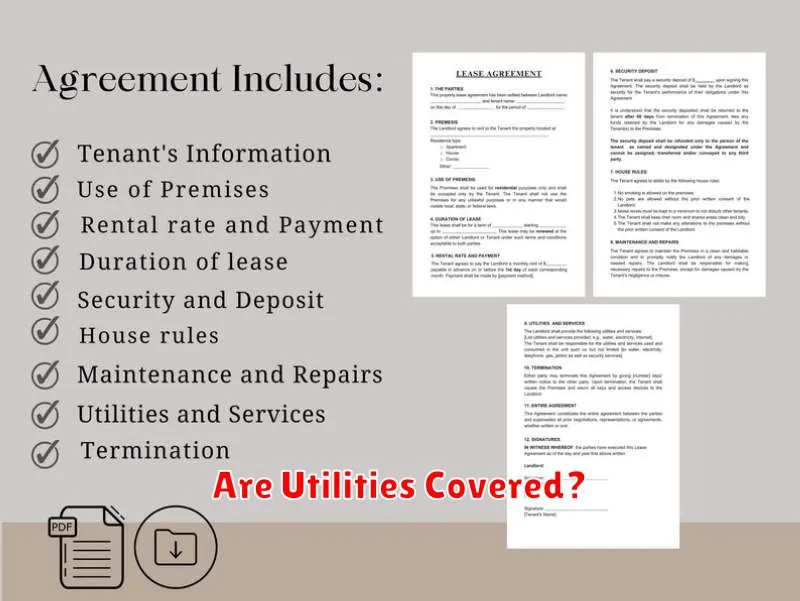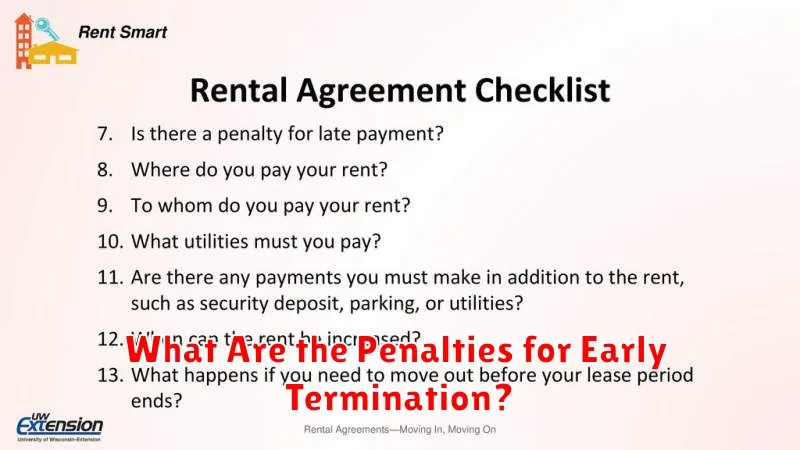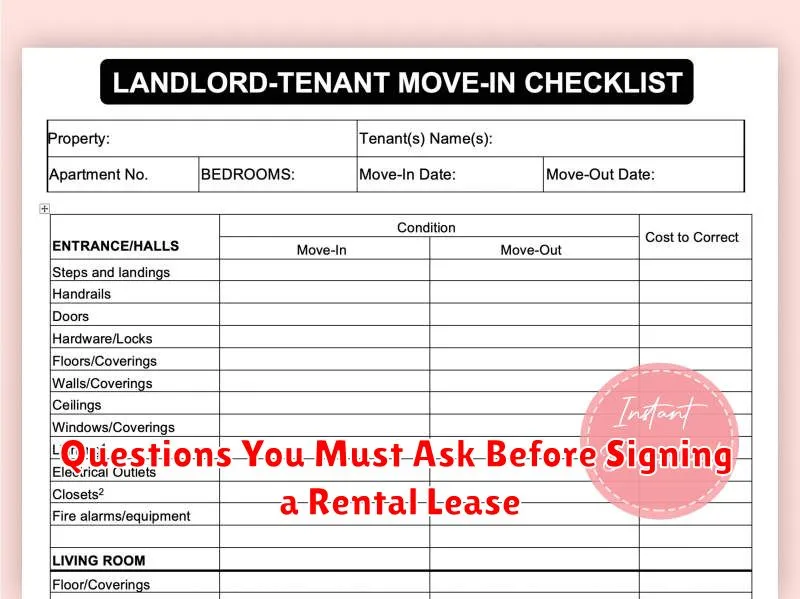Signing a rental lease is a significant commitment. Before you put your signature on that dotted line, it’s crucial to ask the right questions to ensure the rental agreement suits your needs and protects your rights. Understanding the terms and conditions of your lease can prevent future disputes and ensure a positive renting experience. From pet policies and lease durations to maintenance responsibilities and utility costs, asking comprehensive questions beforehand can save you from headaches down the road. This article will provide you with the essential questions you must ask before signing a rental lease agreement, empowering you to make an informed decision and enter your new rental with confidence.
Navigating the complexities of a lease agreement can be daunting. This guide will equip you with the knowledge to confidently address key aspects of your rental lease before you commit. We’ll delve into crucial questions regarding rent increases, security deposits, parking arrangements, and property maintenance responsibilities. By understanding your rights and obligations as a tenant, and clarifying the landlord’s responsibilities, you can secure a rental experience that is both comfortable and legally sound. Read on to discover the crucial questions that will empower you to make an informed decision before signing your next rental lease.
What’s Included in the Rent?
Before signing a lease, it’s crucial to understand exactly what is included in your monthly rent payment. This avoids unexpected expenses and ensures you’re getting what you pay for.
Specifically, inquire about the following:
- Utilities: Are any utilities included, such as water, gas, electricity, trash removal, or internet? If so, which ones?
- Amenities: Does the rent cover access to amenities like a gym, swimming pool, parking space, or laundry facilities?
- Maintenance: What kind of maintenance is included? Does it cover regular landscaping, pest control, or appliance repairs?
Get clear, written confirmation of what’s included and what’s not. This will prevent misunderstandings and potential disputes later on.
Are Utilities Covered?

Understanding which utilities are included in your rent and which you’ll be responsible for is crucial. Don’t assume anything. Explicitly ask your landlord which utilities are covered by the rent and which you will need to pay separately.
Common utilities include:
- Water
- Electricity
- Gas
- Trash/Recycling
- Internet/Cable
Get clarity on who is responsible for setting up accounts and paying bills for the non-included utilities. This information should be clearly outlined in the lease agreement.
Asking about average utility costs for the property can help you budget appropriately. While the landlord may not be obligated to provide this, it’s worth inquiring.
What Is the Policy on Repairs?
Understanding the repair policy is crucial before signing any lease. Clearly establish who is responsible for what. Ask about the procedure for requesting repairs. Is there an online portal, a dedicated phone number, or do you submit requests in writing?
Inquire about reasonable response times for repairs. Some jurisdictions have legal limits on how long a landlord can take to address essential repairs, such as plumbing or heating issues. Know your rights and ensure the lease aligns with local laws.
Specifically, discuss:
- Responsibility for appliance repairs (refrigerator, oven, etc.)
- Pest control measures and who covers the costs
- Procedures for handling emergency repairs (e.g., burst pipes)
Documenting the condition of the property before moving in with photos and/or video is highly recommended. This documentation can protect you from being held liable for pre-existing damage.
Can You Sublet the Apartment?
Subletting, which is renting out the apartment to another tenant while you are still under lease, can be a crucial factor if your circumstances might change during the lease term. Some leases explicitly prohibit subletting, while others allow it with the landlord’s written permission.
Carefully review the lease agreement for details regarding subletting. If the lease doesn’t address subletting directly, it’s essential to ask the landlord about their policy. Understand the process for obtaining permission, if allowed, including any required documentation or fees.
Consider what happens if you need to break your lease early. Does the landlord allow it? Under what circumstances? Are there significant penalties involved? Subletting might be a preferable alternative to breaking the lease and incurring those costs.
What Are the Penalties for Early Termination?

Breaking a lease before its expiration date can lead to financial penalties. It’s crucial to understand these potential costs before signing any lease agreement.
Common penalties include forfeiting your security deposit, paying rent for the remainder of the lease term, or a combination of both. Some leases stipulate a fixed early termination fee, often equivalent to one or two months’ rent.
Mitigating potential losses is sometimes possible. Landlords are generally required to make reasonable efforts to re-rent the property. If they find a new tenant quickly, your responsibility for the remaining rent may be reduced or eliminated. However, you might still be responsible for the costs associated with finding a new tenant, such as advertising fees.
Always carefully review the early termination clause in your lease agreement. Understand the specific terms and potential financial ramifications. If anything is unclear, seek clarification from the landlord or a legal professional.

